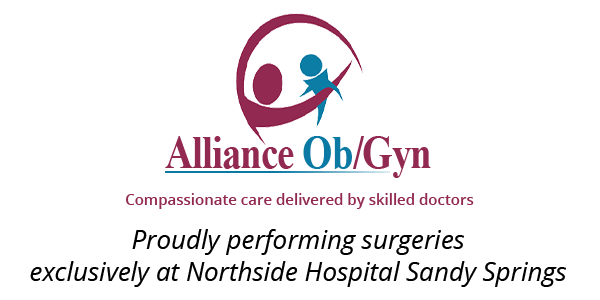
PCOS Awareness Month: Understanding and Managing Polycystic Ovary Syndrome
By: Alliance Ob/Gyn in Alpharetta, GA
September is PCOS Awareness Month, a time dedicated to educating women about polycystic ovary syndrome (PCOS), one of the most common hormonal disorders affecting reproductive health. At Alliance Ob/Gyn in Alpharetta, GA, we want to empower women with knowledge about PCOS, its symptoms, and available management options. If you’ve wondered whether your symptoms may be linked to PCOS, this article will help answer that question and guide you toward the next steps.
What Is PCOS?
Polycystic ovary syndrome is a hormonal condition that affects how the ovaries work. Women with PCOS may experience irregular periods, high levels of androgens (male hormones), and small cysts on the ovaries. While the exact cause isn’t fully understood, genetics and insulin resistance play major roles in its development.
Common Symptoms of PCOS
- Irregular or absent menstrual cycles
- Excess hair growth on the face, chest, or back (hirsutism)
- Acne or oily skin
- Weight gain or difficulty losing weight
- Thinning hair on the scalp
- Difficulty conceiving
- Darkened patches of skin (especially on the neck or underarms)
Health Risks Linked to PCOS
PCOS doesn’t just affect fertility—it can have long-term impacts on a woman’s health. Women with PCOS are at higher risk for:
- Type 2 diabetes and insulin resistance
- High blood pressure and heart disease
- Endometrial cancer due to irregular ovulation
- Sleep apnea
- Anxiety and depression
How Is PCOS Managed?
There is no single cure for PCOS, but symptoms can be effectively managed with lifestyle changes and medical treatments. Common approaches include:
- Lifestyle Adjustments: Regular exercise and a balanced diet can improve insulin resistance and help regulate cycles.
- Medications: Birth control pills can regulate menstrual cycles and reduce acne and excess hair growth. Metformin may be prescribed to improve insulin resistance.
- Fertility Treatments: For women trying to conceive, medications like Clomid or letrozole may help stimulate ovulation.
- Hair and Skin Treatments: Dermatological options can address acne, excess hair, and thinning hair.
When Should You See a Doctor?
If you experience irregular periods, trouble conceiving, or symptoms like excess hair growth and acne, it’s important to seek medical guidance. Early diagnosis and management can reduce long-term health risks and improve quality of life.
Take Action This PCOS Awareness Month
At Alliance Ob/Gyn in Alpharetta, GA, we provide comprehensive care for women living with PCOS, from diagnosis to long-term management. If you suspect you may have PCOS or need support managing symptoms, we encourage you to schedule a consultation with our team.
Learn more and contact us today: https://allianceobgyn.com/contact-us/
Further Reading
For more information, visit the Office on Women’s Health https://www.womenshealth.gov/a-z-topics/polycystic-ovary-syndrome



